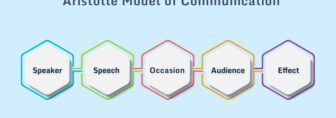What Does ADHD Look Like in Adults?

Attention Deficit Hyperactivity Disorder (ADHD), commonly known as ADHD, is often thought of as a childhood ailment. However, it can be a lifelong condition, following many people into adulthood. If one leaves it as it is, ADHD can significantly impact his/her quality of life.
This article will significantly enhance your understanding of adult ADHD, from its symptoms to the most viable treatment options. Keep reading to learn more.
Understanding ADHD—What is it?
ADHD is a neurodevelopmental disorder primarily characterized by challenges with attention, impulsivity, and hyperactivity. Symptoms frequently begin during childhood and have the potential to continue into adulthood. Often underestimated, ADHD, particularly in adults, is not merely about “lack of focus” or being “overactive.”
Scientists believe that ADHD is caused by several factors, including genetics, issues with the central nervous system during key moments of development, and environmental factors. On the other hand, sugar, poor parenting, or excessive screen time do not cause ADHD, contrary to many myths.
When it comes to adults, identifying ADHD can be complicated. The symptoms may often be subtle and may be overshadowed by other issues such as anxiety, depression, and certain addictions.
To ensure an accurate diagnosis, one needs to consult with a healthcare professional to receive an adults ADHD assessment to determine the presence of the disorder. Let’s check out the common symptoms of attention deficit hyperactivity disorder in the next section of the article.
Common Symptoms Of ADHD In Adults
Being easily distracted, disorganized, having difficulties with concentration, and struggling to listen or follow through on tasks are a few symptomatic traits of ADHD in adults. These attributes can significantly affect an individual’s professional and personal relationships, further leading to low self-esteem and depression.
Some common symptoms include disorganization, relationship concerns, and lack of focus. People diagnosed with ADHD might appear as less attentive or insensitive. It’s imperative to note that these symptoms should not be written off as personality traits. They are indicative of a neurological disorder that requires management.
However, people with ADHD often possess strengths, too, such as creativity, resilience, and versatility. Abilities that, when harnessed correctly, can be highly beneficial. At times, they come out as the strongest person in the entire room- although it is a rare event.
Moreover, symptoms of ADHD may vary between genders. Women with this disorder often experience difficulties with inattention, while men typically display signs of impulsivity and physical restlessness.
It’s essential to remember that while this disorder can affect individuals in many similar ways, everyone’s experience with ADHD is distinctive.
Differences In ADHD Symptoms Between Children And Adults
There are significant differences between ADHD signs in children and adults. While children with ADHD generally have trouble concentrating and sitting still, symptoms in adults often manifest as a struggle with organizing, meeting deadlines, and executing long-term plans. This can significantly impact their capacity to accomplish personal and professional responsibilities.
For adults with ADHD, maintaining relationships can be challenging. They might often interrupt others, have difficulties keeping up with conversations, or fail to pay attention to details. Such behavioral traits can lead to misunderstandings and conflicts.
Since childhood symptoms of ADHD are well recognized, diagnosis at a younger age is fairly common. Hence, many adults remain undiagnosed because the disorder’s signs in adults may not be as apparent.
It’s therefore critical for adults who believe to exhibit ADHD symptoms to seek expert assistance for a proper diagnosis.
The Impact Of ADHD On An Adult’s Life
An adult with Attention Deficit Hyperactivity Disorder may struggle in various areas of life, such as maintaining relationships, performing at work, and managing day-to-day tasks. Punctuality, multitasking, organization, and time management are often challenging for adults with ADHD.
For those with undiagnosed ADHD, the inability to overcome these challenges often leads to a feeling of underachievement, resulting in low self-esteem and frustration. This is because the issues faced are not due to a lack of motivation or effort, but because of an undiagnosed neurodevelopment disorder.
Furthermore, adults with ADHD are likely to grapple with other psychiatric illnesses such as anxiety disorders, depression, substance abuse, or personality disorders. This can make handling daily tasks and responsibilities even more challenging.
However, once accurately diagnosed, an adult with ADHD can take active steps to manage the disorder and achieve a fulfilling life. At such crucial times, it is important for family members and close relatives to be a bit supportive. The person might not be in the right condition to deal with too much stress at that time.
Diagnosis And Treatment Options For Adults With ADHD
Diagnosing ADHD in adults requires a comprehensive approach that includes clinical interviews, self-reporting tests, and sometimes third-party observations. Completing extensive assessments over different settings is essential to rule out other possible conditions and ensure accurate diagnosis.
Once diagnosed, the path to managing ADHD usually involves a combination of treatments, including psychoeducation, which involves understanding the disorder, its implications, and ways to cope with it. An appropriate understanding of one’s health can aid immensely in managing the disorder.
ADHD medication can also be part of the treatment plan. The medicines used for ADHD are proven to be effective in alleviating symptoms in 70% to 80% of adults with ADHD.
Additionally, cognitive-behavioral therapy aims to replace negative behaviors and thought patterns with positive ones. Lifestyle changes, such as adequate sleep, regular physical activity, and a healthy diet, are also crucial aspects of managing ADHD.
Parting Words
Overall, recognizing that ADHD is not a sign of laziness or lack of willpower but a genuine neurological disorder is the first step toward better management. With proper diagnosis and treatment, adults with ADHD can live successful, fulfilling lives.
Remember, ADHD is difficult to treat, not impossible. All you have to do is seek the right guidance and help. With this article, you might have received a thorough idea of the symptoms and medical treatment of ADHD.
Thank you for reading this far. If you enjoyed reading this comprehensive guide, make sure to comment below.
Read Also:


























